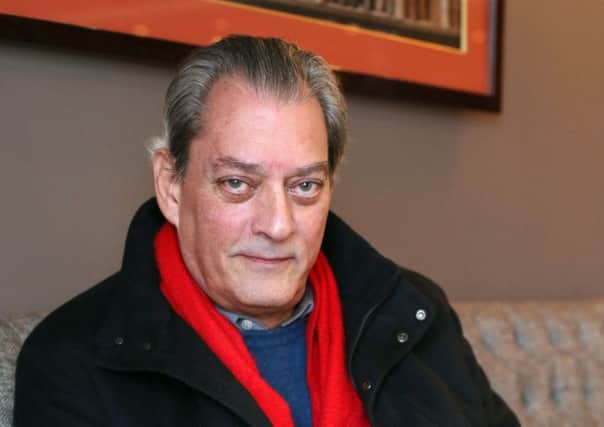Book Festival review: Paul Auster at 70


In an hour-long event which seemed far too short, he discussed some of the key influences and events which formed him as a writer with American-born, Edinburgh-based writer Nora Chassler, book-ending the event with two readings from his latest novel, 4321, recently longlisted for the Booker Prize.
While he emphasised that 4321 – which features four versions of the same protagonist, all of whom become writers – is not autobiographical, he said he did “borrow” somewhat from his life.
Advertisement
Hide AdAdvertisement
Hide AdAuster explained that he was raised in a house without books, and got his early reading material from the public library. By the age of 11 he was producing stories in the style of the writers he most admired, Robert Louis Stevenson and Edgar Allen Poe.
His epiphany came at 15 when he read Dostoyevsky’s Crime and Punishment: “It was like a big rock fell on my head and altered everything inside my brain,” he said. “I wanted to write books.”
He had what he described as a “long, slow apprenticeship”, working in manual jobs, including spending six months on an oil tanker in the Gulf of Mexico. A meeting with Egyptian Jewish writer Edmond Jabès was an important moment.
“He said that the job of every writer is to subvert, and that the only thing that’s subversive is clarity. That’s what I strive for always.”
In the end, a clue to what Chassler called “the Auster-verse” can be found in one of the protagonists in 4321 who says that he wants to see the world as clearly as the most dedicated realist, but also to look at it through a distorting lens. “Don’t we want to shake people up?” Auster asked. “We don’t want to be so complacent as to give everybody what they think they want.”
Asked what literature could offer, in a world where “two toxic narcissists [were] about to start a nuclear war”, he was unequivocal. “Books can have an enormous impact. They give you a sense of connectedness to other people. To read a novel, you need to enter fully into the consciousness of someone who is not yourself. They can make us more compassionate.”